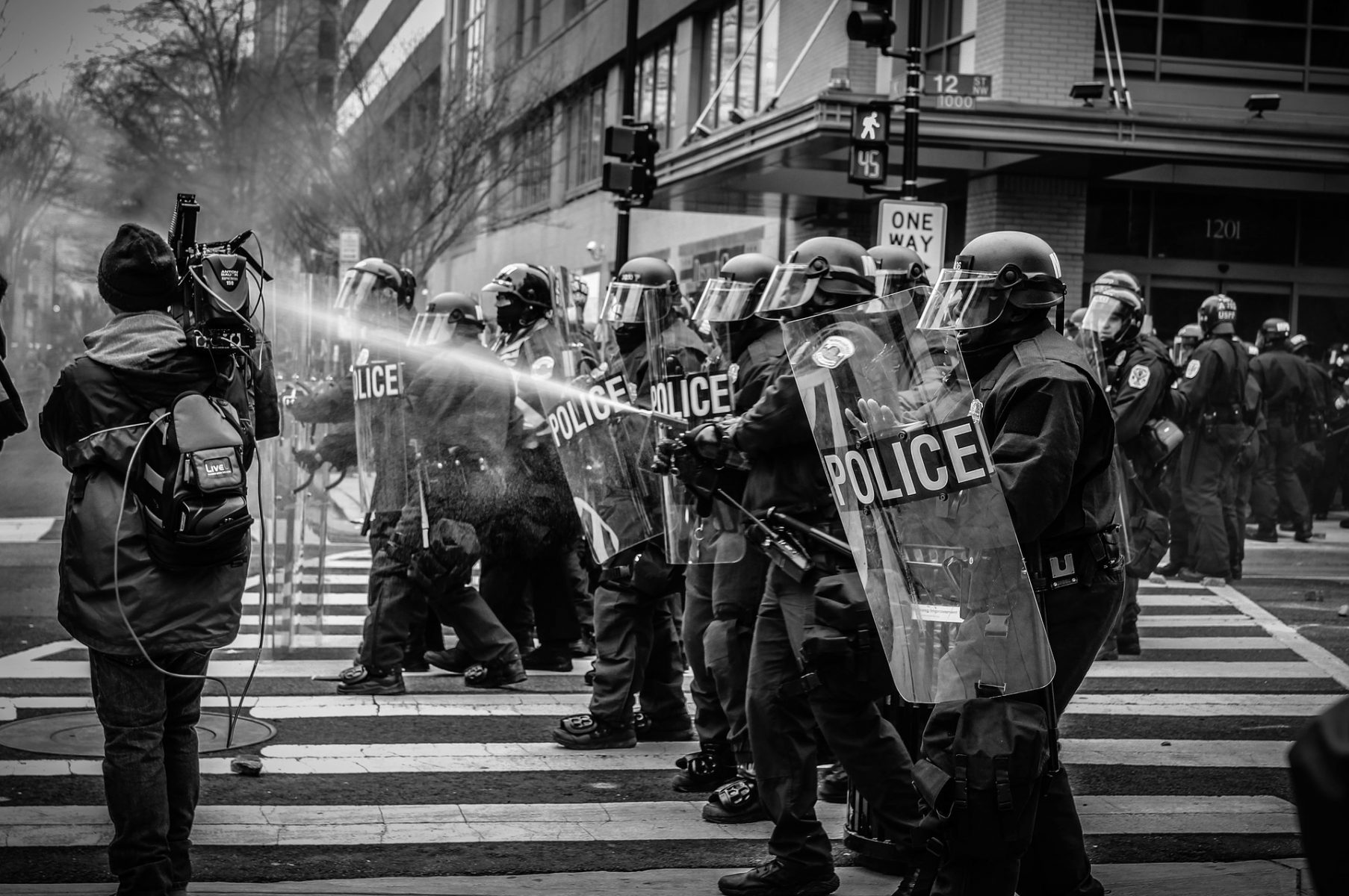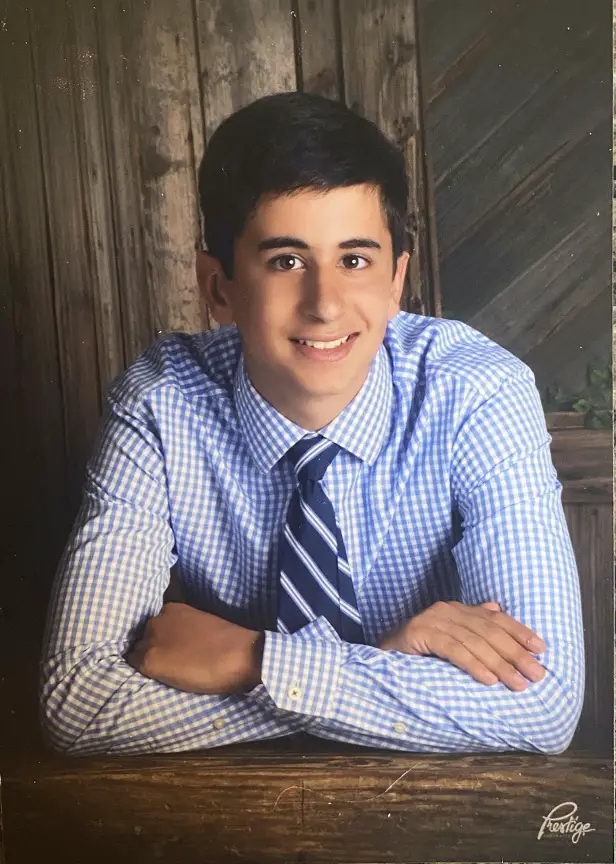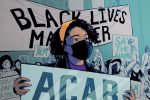Sam Adler-Bell was right when, in an essay for Dissent magazine, he wrote, “When it comes to conservative ideology, incoherence is a feature, not a bug.” At the time, he was critiquing the latest trove of right-wing pandemic talking points — many of which were disjointed, but all shared in a common absurdity.
The opposition to the Black Lives Matter movement is no different. After a cop shot Jacob Blake in the back seven times in front of his three small children, many conservatives were quick to justify the crime. False claims of a gun in Blake’s car were circulated. To some, this meant that Blake was “armed” and therefore forfeited his right to not be used for human target practice.
But, remember, we have a Second Amendment in this country. Like it or not, private citizens are allowed to “keep and bear arms.” Even if Jacob Blake had a gun, that does not in itself justify bullets flying in his direction. That is his right, and he is free to exercise it. One would think conservatives, the supposed champions of gun rights, would understand this. Unless, of course, they possess a widespread belief that those rights do not apply to Black men.
As crazy as that idea might sound, it is not without historical precedent. The radical socialists of the Black Panther Party embraced the Second Amendment as a means for self-defense. Naturally, they were smeared by the right as violent thugs posing a great threat to “law and order.” The National Rifle Association, along with right-wing politicians like Ronald Reagan, even supported gun control in an attempt to disarm the group.
For cases more directly related to that of Jacob Blake, look to Philando Castile, John Crawford and Tamir Rice. Let us go through them one by one. After notifying a police officer he had a gun in his car during a routine traffic stop, Castile was shot and killed by the policeman at point-blank range. An officer murdered John Crawford in a Walmart while he was buying a BB gun. Twelve-year-old Tamir Rice was playing with a toy gun in the park when he was shot dead by a cop within two seconds of arriving on the scene. In each case, the presence of a firearm — or, in the case of Rice, what looked to be a firearm — was used to excuse police malfeasance.
The argument often begins by noting what a stressful job being a police officer is. And, though perhaps tempting to argue otherwise, this is certainly true. It is also a job that the cops willingly signed up for. That is not to say that external pressures did not push them toward that career path, but it would be strange to deny their agency entirely.
Then, those excusing the police shooting of an “armed” suspect might point out that the officer was in danger. The suspect’s possession of a gun was reason enough for the officer to believe it might be used against him. And therefore, in the name of self-defense, the officer is justified in using preemptive force to protect himself and anyone else who happens to be at the scene.
This argument seems straightforward enough and, thus, might even appear hard to counter. If you were hoping I would show you how to do so, you are out of luck. Instead, I am more interested in analyzing the assumptions baked into the argument. Namely, the idea that police are justified in feeling on edge when an armed person is in their vicinity, and that this anxiety can lead them to discharge force in rash ways.
Wait a minute. Is that not an excellent point in favor of gun control? Conservatives are fond of the quote “An armed society is a polite society,” but, in the case of police shootings, they also tacitly concede that an armed society is one in which even those trained in the use of a firearm feel unsafe. That is pretty strong evidence that, despite what conservatives tell us, civilian gun ownership does not, in fact, keep people safe. It actually creates a more dangerous situation for all of us.
And the theoretical is backed up by the empirical. Psychological research shows that “the mere presence of weapons may increase aggression.” This translates across a variety of situations. Drivers with weapons in their car are more likely to tailgate and make obscene gestures toward fellow motorists. In an experiment conducted by the late social psychologist Leonard Berkowitz, subjects were inclined to inflict greater pain on someone who angered them after seeing a gun. In summarizing the findings, Berkowitz noted: “Guns not only permit violence, they can stimulate it as well. The finger pulls the trigger, but the trigger may also be pulling the finger.”
It should come as no surprise, then, that counties in the United States with more guns tend to have more violent crime too. This trend holds even after controlling for important confounders, say researchers from the Harvard School of Public Health. It also transcends the borders of the United States. Violent crime rates in most other rich countries pale in comparison to those of the United States, where guns outnumber people.
Criminologists have known these facts for a long time, and gun manufacturers have been desperate to bury them. Indeed, any knowledge that may threaten Smith & Wesson’s profits must be suppressed. But the people ought to know the truth.
As the Black Lives Matter movement continues to gain traction, one of their main demands is to demilitarize the police. This is necessary but, I am afraid, insufficient. To promote public safety to the fullest, we must call for a demilitarization of society at large. That includes getting weapons of war not just off of our streets, but out of our hands in general.
With everything going on right now, it is understandable that the issue of gun control has been tabled. But we must not forget about it or leave it behind. Forty-thousand Americans lose their lives to guns each year. Not quite coronavirus numbers, but an immense (and all too normalized) tragedy nonetheless. Something must be done.

















